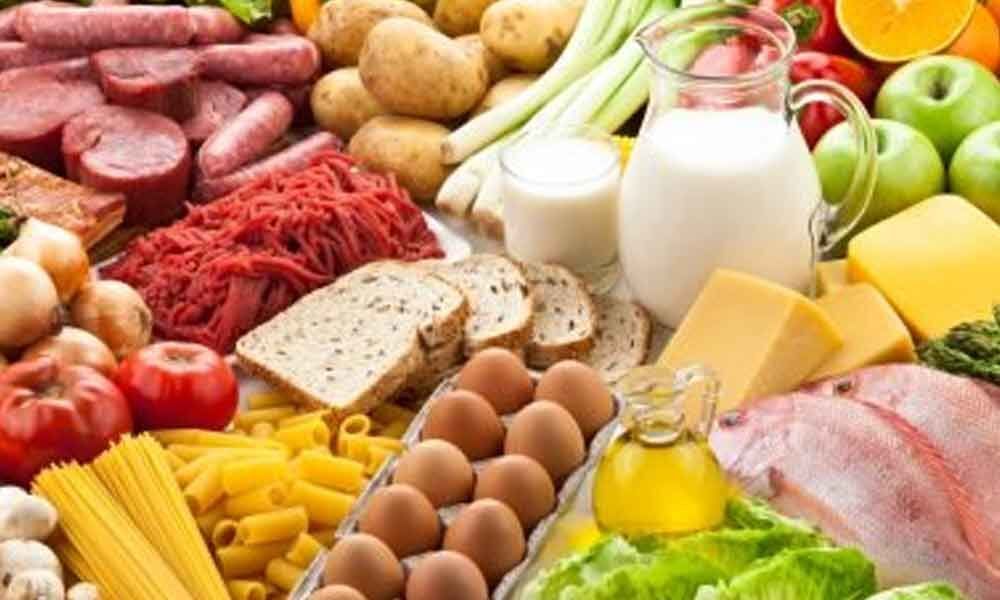The food you need

If you educate a man you educate an individual but if you educate a woman you educate a nation. Let me educate women on good nutrition as food knowledge is always passed from grandmother to mother to daughter.
It is not about size zero but about healthy food, healthy body, healthy mind and healthy generations to come.
1. Pregnancy: Women always need to have 25 per cent more fat than a man to hold their pregnancy.
So the calories that you need to increase when you are pregnant is about 300 calories and if you add in good fat from nuts and seeds which are brain foods along with plenty of vegetables, leafy greens, a small amount of whole grains accompanied by either daals/dairy/egg/fish/ chicken, cooked in good quality fat and seasoned with herbs and spices, it is a won-win situation.
Satisfy any sweet craving with fruits. These foods will also benefit lactation, prevent constipation, keep the blood pressure and blood sugar steady.
Include sesame, pumpkin, melon, fenugreek, fennel, dill seeds almonds, walnuts, lemon to boost iron and calcium levels and to ensure good milk flow during lactation.
Avoid: Raw papaya, white flour, white sugar, aerated drinks, fried and processed foods.
2. Infancy (0-6): It is a crucial time of growth and the overall well being of the child is completely dependent on the mother. So, the best food of course is breast milk and the nutrient quality of the breast milk depends on the nutrition of the mother. So I cannot emphasise on how it is for the mother to have correct nutrition.
The foods that you introduce to your girl child have to be nutrient rich for her to excel in life. The plant kingdom is what you need to focus on. Begin with pureed vegetables that are packed with nutrients. Pumpkins are my favourite first foods for the little one.
Follow this with mashed potato along with some desi ghee as it helps in brain development. Slowly and steadily introduce pureed vegetables mixed with boiled rice and desi ghee. After a few days toss in a spoon or two of moong daal in this. In between, continue breast feeding, after some time a pureed fruit can be added on.
So the food of a toddler till they go to school would consist mainly of vegetable soups, a grain and daal. Salt and mild spices like jeera and haldi can be introduced a few weeks after the child is comfortable.
3. Childhood (ages 6-12): The nutrition requirement for the girl is very important as soon it would be the onset of puberty. Growth rate is slow so don't panic and overfeed your child. Continue your focus on feeding organic whole foods.
The artificial colours, chemicals and pesticides have an adverse effect on the body. This can lead to early puberty which is the root cause of all diseases. Part and parcel of growing up is eating poorly as junk food creeps in. So try to ensure you keep a watch on their meals and make them balanced.
4. Adolescence (ages 13-19): This period of life shapes the young girl into a young woman. Her physical and hormonal development all depend on her diet and physical activity during this period.
I think fresh home-cooked meals are the key to balance her hormones that are all over the place. Sabzi, roti, Daal, chawal is considered passé today. Food is 'on the go' and nutrition goes for a toss.
Water intake is minimal leading to acne and digestive issues. She barely has time to eat thus reaching out for nutrient dead food. What I call legalized illegal foods is the norm. Fried, processed, sugar and white flour laden foods, aerated and caffeinated drinks feature in her basic diet.
These further wreak havoc in her mind and body leading to poor performance and low grades.
Educate them on the importance of a well-balanced diet rich in fruit, vegetables, wholegrains, nuts, seeds, pulses and yoghurt is the key to achieve excellence.
5. Adulthood: A woman is going through multiple changes in this period; from environment, work and marriage. She goes through hormonal changes with pregnancy, premenopause and menopause.
Food is the only constant through this. All I can say is eat fresh, unprocessed, regional, seasonal foods to cope with these changes. Be vigilant about what you put into your body and realise that your bodies are temples.
6. Geriatric: To make this transition in her life, the food that she has eaten from the time of conception will dictate her sunset years. Four meals would be a must to keep her mind and body alert.
To be happy and calm don't skip meals, remember to drink water. This may be called your second childhood but you don't have to eat like a child.
Make it a point that all meals have vegetables with a small amount of grains as well as pulses. Snack on fruits.life
-Health For You


